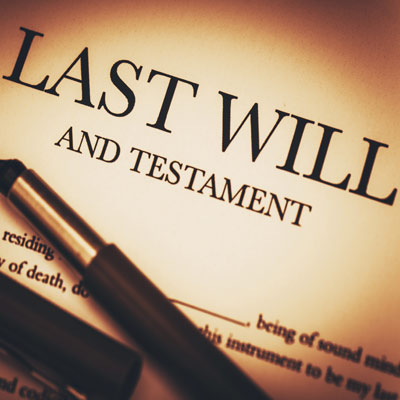Thinking about what happens to your assets when you pass away is not a pleasant or easy task. However, having an estate plan in place is the best way to ensure that your property is distributed according to your wishes, especially for large or complex estates. If a person is intestate when they die, meaning that they do not have a will or trust in place, their assets are divided according to provisions laid out in state laws.
In Pennsylvania, the Chapter 21-Intestate Succession laws establish who the default beneficiary will be in cases without a will and what type of assets they will receive. Under Chapter 21, most assets will go to the decedent’s closest surviving relatives, including a spouse, children, parents, siblings, etc. The law accounts for many different scenarios, depending on the decedent’s family situation. For example, if the decedent has a living spouse and children, but the spouse is not the parent of the children, then the spouse will receive half of the estate and the other half will be divided among the children.
Non-Intestate Assets
Intestate succession only applies to certain types of assets, namely those that would normally be included in a will. For other types that are jointly held or for which there is already a beneficiary named, the state will not interfere with their dispersal. This can include insurance policies, retirement accounts, such as 401(k)s or IRAs, property that is already held in a trust, assets in transfer-on-death or payable-on-death accounts, or property co-owned by another person or entity. In intestate cases, jointly owned property will automatically transfer to the surviving owner while other assets will go to the named beneficiary on the account or policy.
Drawbacks of Intestate Succession
While in many cases the decedent may be planning to transfer their estate to their closest relatives, the Intestate Succession law does not always line up with their wishes. The law can have unintended consequences; for example, if a person dies without children, they may wish to leave everything to their spouse. If their parents survive them, however, then the spouse will receive the first $30,000 of the estate’s assets, plus half of the remainder, while the other half will go to the parents. Additionally, if the decedent has foster children or stepchildren, they will not automatically be included in the distribution of intestate assets.
Intestate succession can leave other things to chance as well. Without a will, a person cannot provide instructions for the maintenance of an estate or distribute individual belongings that may have sentimental value to their heirs. There are also no provisions for the guardianship of minors, which can cause confusion in cases of divorce of single-parent households. A decedent without a will also loses the opportunity to name an executor, the person who will oversee the distribution of assets and ensure that their wishes are fulfilled.
Delaware County Wills and Estates Law Firm of Eckell Sparks Handle Various Estate Planning Needs
If you do not have an estate plan in place or wish to make changes to an existing plan, call the Delaware County wills and estates law firm of Eckell, Sparks, Levy, Auerbach, Monte, Sloane, Matthews & Auslander, P.C. today. We provide comprehensive, tailored solutions for estates of every size to ensure that your final wishes are carried out. With offices conveniently located in Media and West Chester, Pennsylvania, we serve clients throughout Delaware County, Chester County, and Montgomery County. Call us today at 610-565-3701 or contact us online for an initial consultation with an experienced wills and estates lawyer.

